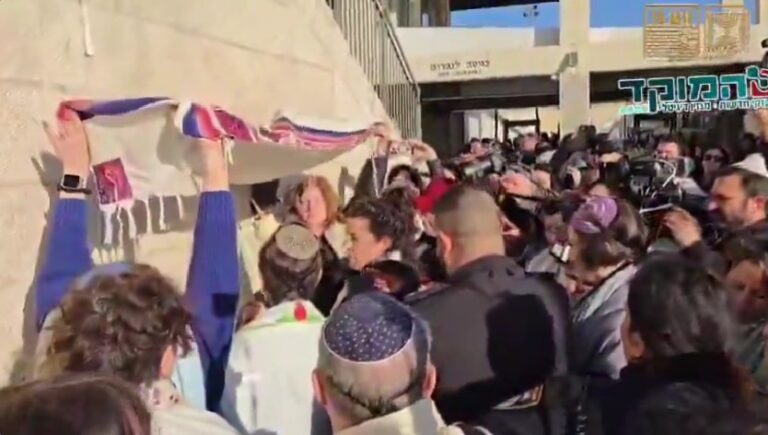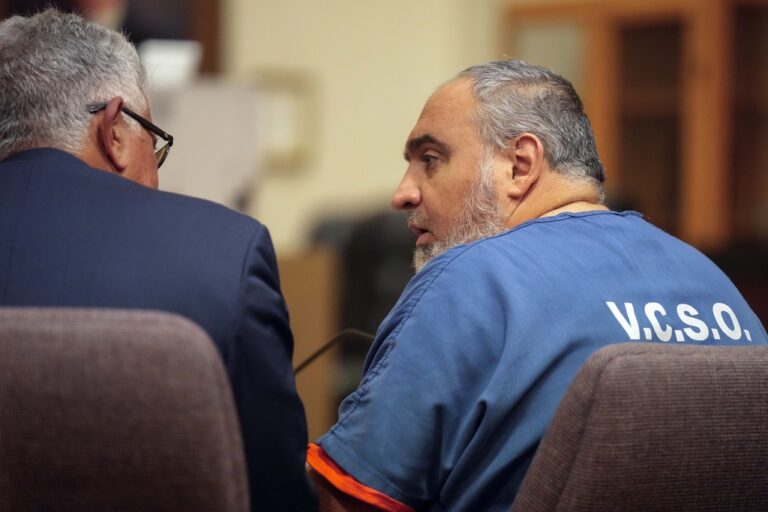Vayishma Yisro (18:1)
The Imrei Emes was once present at a Rabbinical conference in Warsaw that was called to discuss the burning issues of the day and to brainstorm possible solutions. There was one man present who seemed to take great pleasure in finding fatal flaws and poking holes in every proposal that was mentioned. Eventually, the astute Imrei Emes approached the critic and said that because he seemed to be so good at raising questions, he would like to pose to him one of his own. The man became slightly anxious, but agreed to try to answer the question.
The Imrei Emes noted that although the Torah refers to Moshe’s father-in-law as Yisro, Rashi points out that he is actually called by seven different names, each of which connotes a different facet of his personality or accomplishments. One of the seven names is Yeser, which is also the Hebrew word that means “to add.” Rashi explains that this name connotes the fact that a portion of the Torah was added based on Yisro’s suggestion to Moshe that he establish a system of courts and judges.
However, in referencing the section that was added based on Yisro’s proposal, Rashi curiously quotes the verse (18:21) in which Yisro delineated his plan to Moshe and enumerated the requirements for proper judges. This is difficult to understand, as a cursory perusal of the parsha reveals that Yisro’s exchange with Moshe begins several verses earlier (18:17), when he advised Moshe that the current arrangement of Moshe judging all of their disputes singlehandedly was flawed and unsatisfactory. Why does Rashi seem to misquote the beginning of the portion of judges added by Yisro?
The Imrei Emes turned to the cynic and asked him this question, to which the man had no answer. The sagacious Rebbe proceeded to cleverly answer his own question. He told the critic that without much effort, virtually anybody can find problems with the status quo or tear apart a new proposal intended to address a problem. On the other hand, an individual who not only identifies an issue but constructively offers a plan of action is exceedingly rare. In quoting the later verse as the beginning of the portion added by Yisro, Rashi is subtly teaching us that had Yisro only approached Moshe to criticize the current system as flawed without offering a viable alternative, he would not have merited an additional section in the Torah. It was only because Yisro’s critique also included a constructive introduction of a superior alternative did the Torah find it worthy of recording, a thinly-veiled rebuke of the man who seemed to enjoy nothing more than disparaging and shooting down every proposal that had been presented at the Rabbinical gathering. Similarly, Rashi writes (Devorim 34:12) that Hashem praised Moshe for his decision to publicly break the Tablets when he descended from Mount Sinai and observed the Jewish people sinning with the golden calf. However, the verse that Rashi quotes (Shemos 34:1) as the source that Hashem agreed with Moshe’s judgment consists of Hashem’s instructions to Moshe to carve two additional tablets, so that Hashem could inscribe on them the words that were on the first Tablets that Moshe shattered. In line with the insight of the Imrei Emes, Hashem did not allude to His support of Moshe’s decision at the time that Moshe actually broke the Tablets, as destroying is not inherently praiseworthy. Rather, Hashem intentionally waited to give Moshe credit for his actions until the time that he prepared to use the destruction as an opportunity to rebuild.
We live in a society in which it has become natural and even praiseworthy to show one’s brilliance by criticizing the broken status quo and calling for change while attacking any solutions proposed by somebody else. Co-workers do it well, spouses do it better, and many of those who’ve perfected the art are elected to the highest echelons of government. While we cannot change the approach of others, we can internalize for ourselves the lesson of Rashi and the Imrei Emes that while anybody can focus on finding faults, a true leader and innovator will concentrate on proposing constructive solutions.
Vayomer el Moshe ani chosen’cha Yisro (18:6)
The Arizal writes that Moshe was a gilgul (reincarnation) of Hevel and Yisro was a gilgul of Kayin. His student Rav Chaim Vital notes that this is hinted to by the first letters of the words “Ani chosencha Yisro” – I am your father-in-law Yisro – which spell the word “achi” – my brother.
Part of Yisro’s mission in this world was to atone for Kayin’s sin of killing Hevel, which he did in several ways. He gave his daughter in marriage to a gilgul of Hevel, Moshe, which gave Hevel the descendants that were denied him through his murder (Bereishis 4:10). The sacrifice offered by Kayin did not find favor in Hashem’s eyes (Bereishis 4:5), so Yisro corrected this by bringing proper sacrifices to Hashem (18:12), which were enjoyed not just by him, but also by Aharon and the elders of the generation.
Finally, the Chida writes that while the Torah doesn’t recount the final conversation between Kayin and Hevel prior to the murder, the Targum Yonason ben Uziel (Bereishis 4:8) records that part of it was Kayin’s blasphemous claim that there is no Divine judge or system of justice regarding our actions in this world. His gilgul Yisro rectified this by suggesting to Moshe (18:19-23) the concept of establishing a proper system of courts and judges.
V’shaftu es ha’am b’kol eis v’haya kol hadavar hagadol yaviu eilecha (18:22)
V’shaftu es ha’am b’kol eis es hadavar hakashe y’viun el Moshe (18:26)
When Yisro observed Moshe sitting in judgment from the morning until the evening, he commented that the current arrangement was problematic and would wear Moshe out over time. He advised Moshe to appoint judges to assist him so that he wouldn’t have to spend his entire day sitting in judgment.
Recognizing that these judges wouldn’t be as capable as Moshe and would inevitably need his assistance, Yisro added that these judges should bring for Moshe’s judgment any davar gadol – major matter. However, the Torah relates that Moshe instituted a system in which the judges brought to him any davar kashe – difficult matter. Why did Moshe deviate from Yisro’s instructions, and what is the difference between their two approaches?
Rav Chaim Berlin explains that Yisro judged the value and importance of a court case by the amount of money at stake. As such, he advised Moshe that only cases involving large sums of money were worthy of his time and consideration. Moshe, however, understood that the Torah’s goal is to promote justice and therefore assigns the same significance to a case involving millions of dollars as it does to one involving only a few cents. In his eyes, the primary determinant of a case deserving of his valuable time and expertise was one which was difficult for the lower judges to resolve.
Answers to the weekly Points to Ponder are now available!
To receive the full version with answers email the author at [email protected].
Parsha Points to Ponder (and sources which discuss them):
1) Rashi writes (18:1) that upon hearing of the splitting of the Yam Suf and the battle against Amalek, Yisro came to join Moshe and the Jewish people in the wilderness. Why did he wait to hear about the war with Amalek instead of coming immediately after the miracles at the Yam Suf, and why did a war impress him more than all of the miracles at the Yam Suf? (Yirah V’Daas)
2) When Yisro observed Moshe judging the Jewish people the entire day, he questioned why Moshe needed to do so. Moshe responded that the people come to him to rule on their disputes (18:13-16). How was Moshe able to judge the people when his speech impediment was considered a disfigurement (4:10), and the Gemora in Sanhedrin (36b) rules that a person with a disfigurement is ineligible to serve as a judge? (Shu”t Chasam Sofer Orach Chaim 12, Chavatzeles HaSharon)
3) The Jewish people told Moshe (19:8) that everything that Hashem has spoken, na’aseh – we will do. How could any individual Jew respond that he will do all of the mitzvos when there are numerous mitzvos which can only be performed by specific subsections of the population and no single person is capable of doing all of the mitzvos himself? (Genuzos HaGra)
4) If Reuven asks Shimon to kill him, it is forbidden for Shimon to do so, and if he does so in the presence of witnesses who give him proper warning, he is put to death for violating the prohibition against murder (20:13). Although prohibited, if Shimon is preparing to kill Reuven at Reuven’s request, is he legally considered a rodef – pursuer – whom one is permitted to kill if necessary in order to save Reuven’s life? (Minchas Chinuch 34:13)
© 2013 by Oizer Alport.










